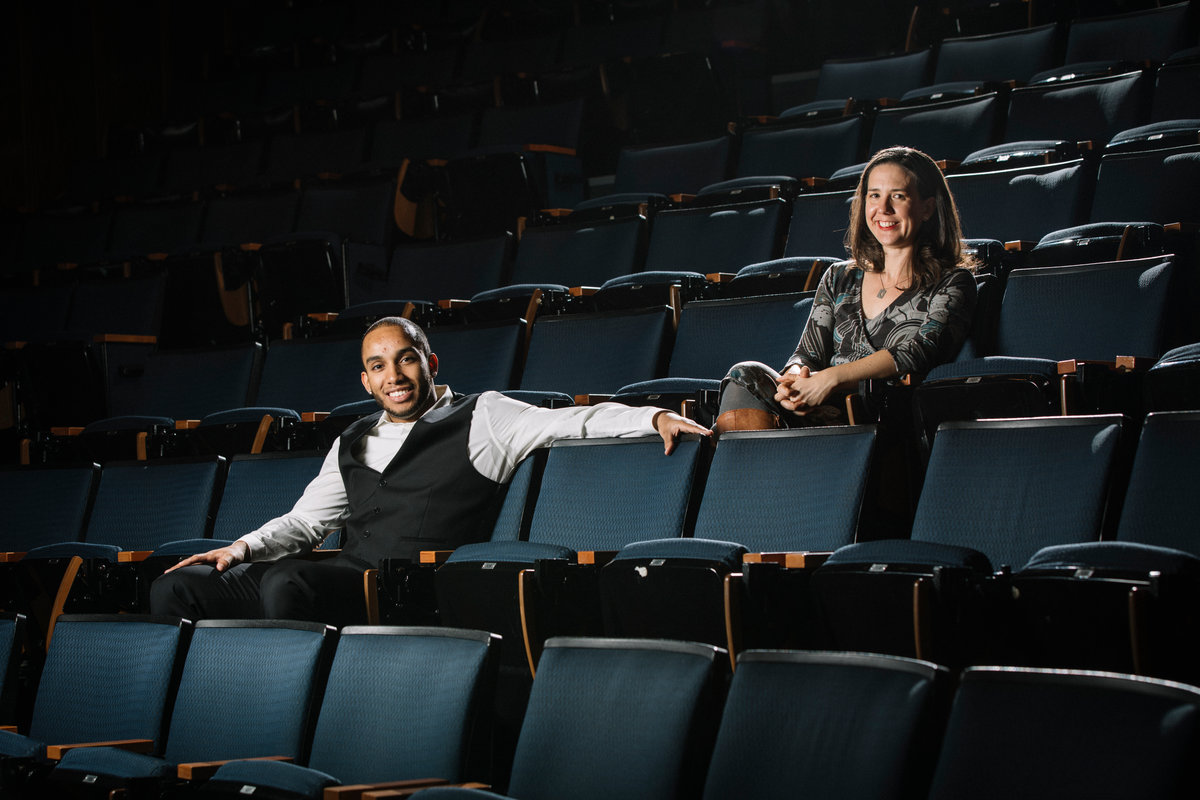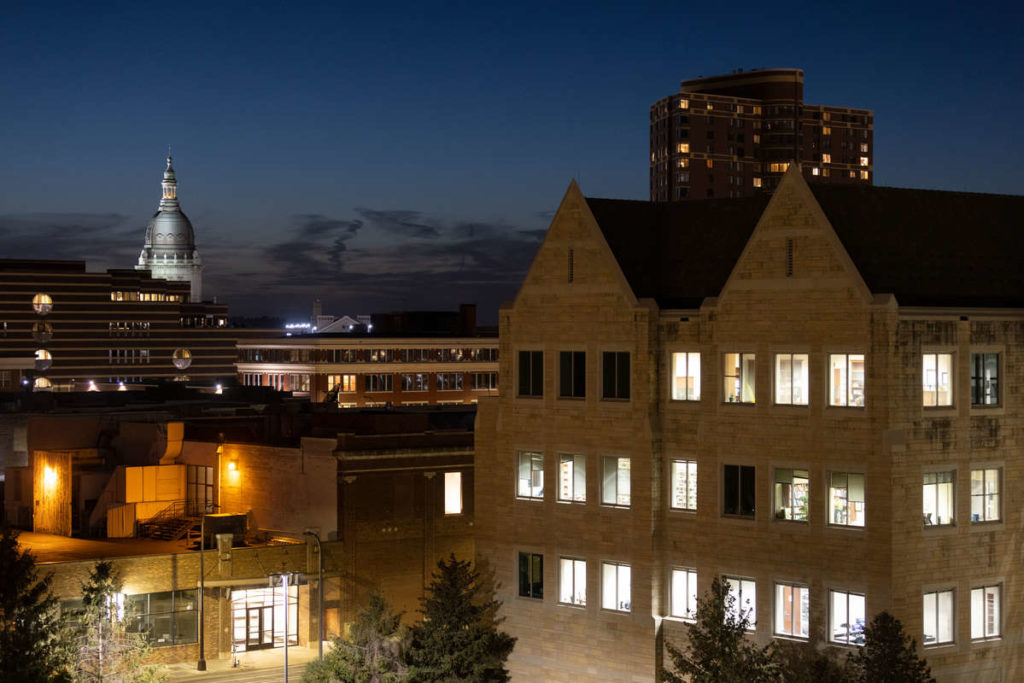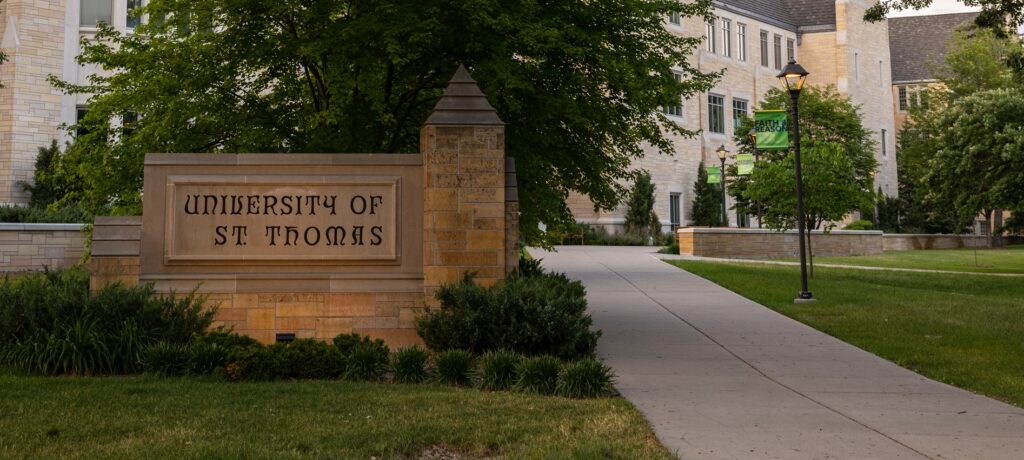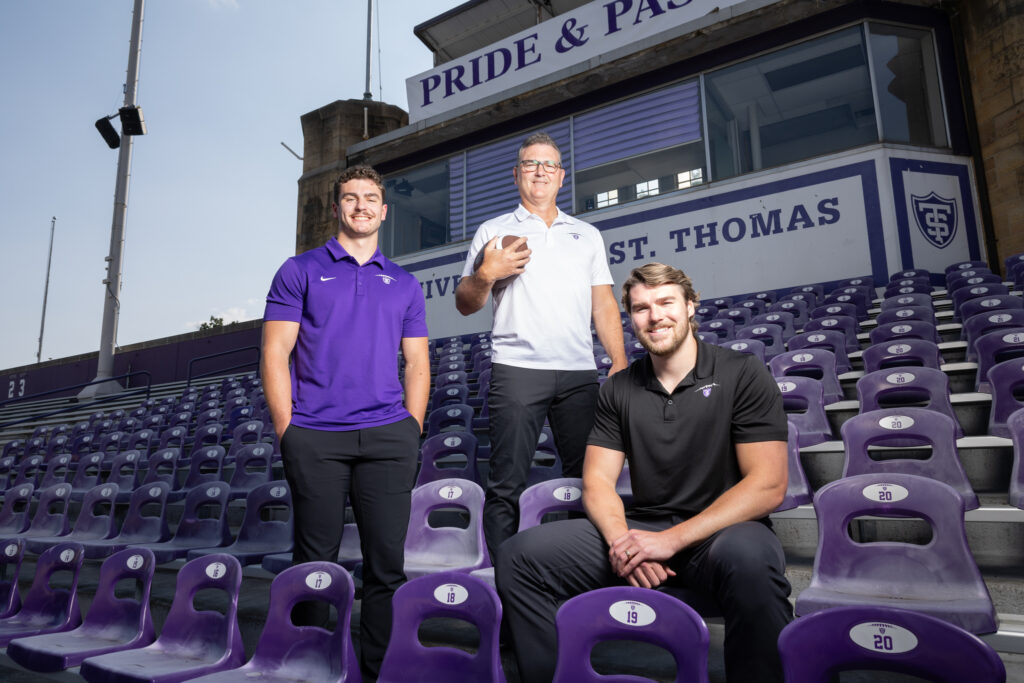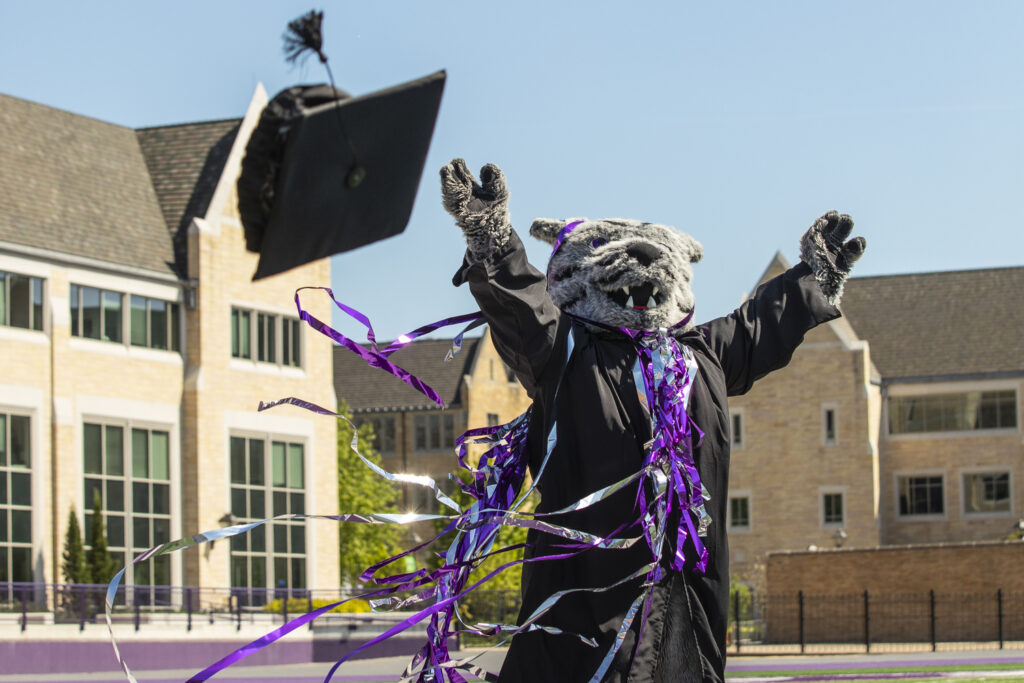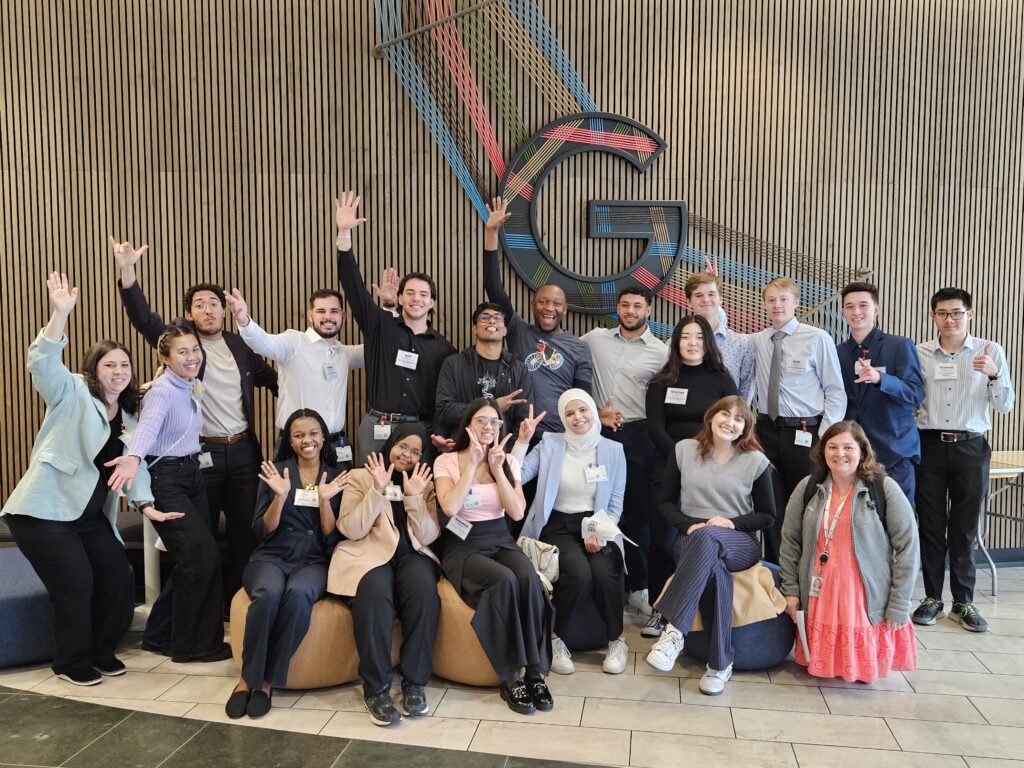Ever since high school, Sam Figueroa has been interested in theology and the legal system. With dreams of becoming a lawyer, Figueroa wasn’t quite sure how to meld his interest in the criminal justice system with his strong Christian faith. His path became clearer, however, after participating in the Excel! Research Scholars program and working with his mentor, Amy Levad, an associate professor of moral theology in the College of Arts and Sciences Theology program.
Levad turned out to be a perfect match for Figueroa, who had taken her Christian Morality class during his sophomore year. Now a senior majoring in theology, the two discussed ideas for a summer research project last spring. Figueroa decided to examine the issue of mass incarceration in the United States and theological aspects of Christianity that contribute to how people view justice.
“Part of what I think went really well with the project is it enabled Sam to dive into a topic he was inherently interested in and explore it, but at the same time it gave him really strong foundations in the field,” Levad said.
“It was eye opening,” Figueroa said about his research that resulted in the paper “God’s Justice.” “It helped me understand the injustices minorities go through. We need to find a better way to deal with crime and punishment. When someone commits a crime, the first thing we need to do is find a restorative manner to solve the problem instead of turning to jail.”
Through her work with Figueroa, Levad found the Oakdale native to be a diligent student not afraid to tackle complicated ideas. She said his work ethic and the skills he developed working with faculty members will be helpful in his future educational endeavors, which include studying criminal law.
“You can advocate for yourself better when you are in classes with 30 other students, but you’re able to meet with faculty members and ask them about their research and talk to them about research projects you’re interested in,” Levad said. “Most faculty members get invested in students. That can make the difference in your overall success with a graduate school program. Faculty members can also help you enter whatever field you’re interested in.”
As part of Excel!, Figueroa also worked with the program’s director, Cynthia Fraction. Fraction leads a select group of undergraduate students each year, helping to prepare them for graduate school admission, the rigors of graduate studies, and to be competitive for graduate school funding through involvement in research and other scholarly activities.
“I was skeptical of Excel! until I met with her and she really encouraged me to give it a chance,” Figueroa said about Fraction. “She told me how much it could help me mentally and with my future goals. It would make me a better reader and writer – that would make me look impressive while applying to law schools. And it did. It helped me dramatically. It also allowed me to strengthen my leadership skills.”
Now, Figueroa is busy applying to law schools and looking forward to a future dedicated to making a difference in the criminal justice system.
“When I’m a lawyer, I want to find alternative ways to help people who commit crimes instead of just throwing them in jail and promoting mass incarceration,” he said. “We’re addicted to throwing people in jail and that has caused a lot of issues. Not only for prisoners and their families, but for citizens, too, because we pay for prisons and state attorneys. I want to open people’s eyes and help them understand what’s going on.”
